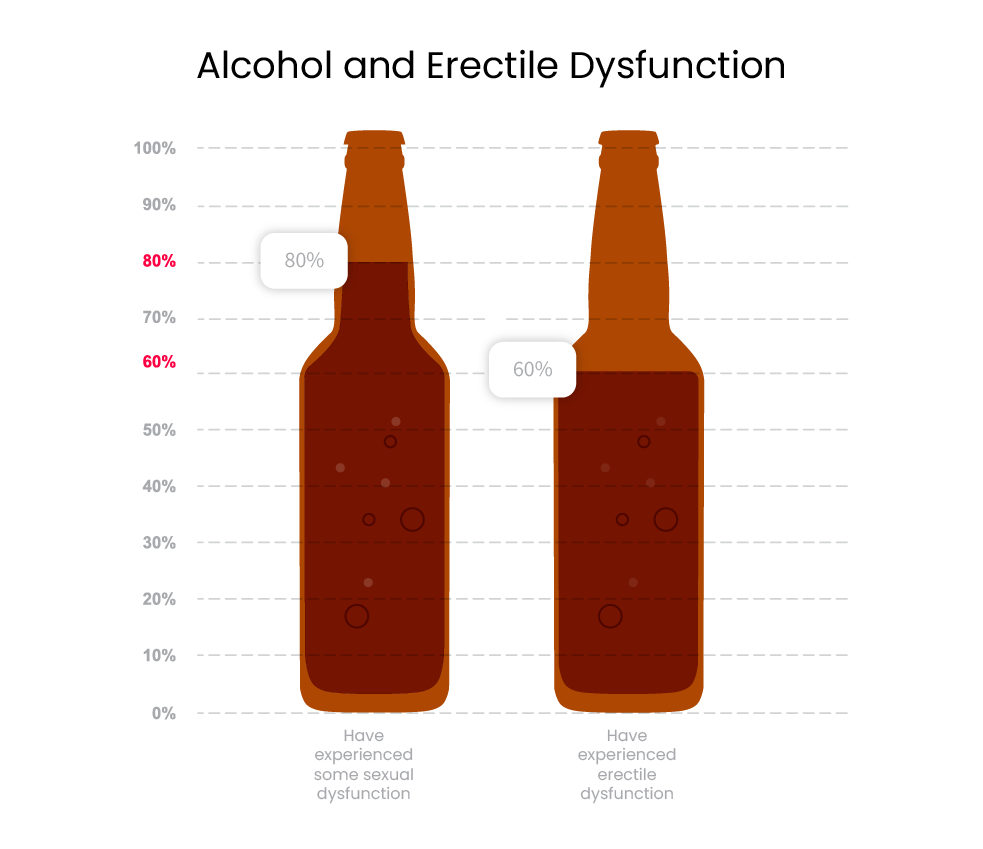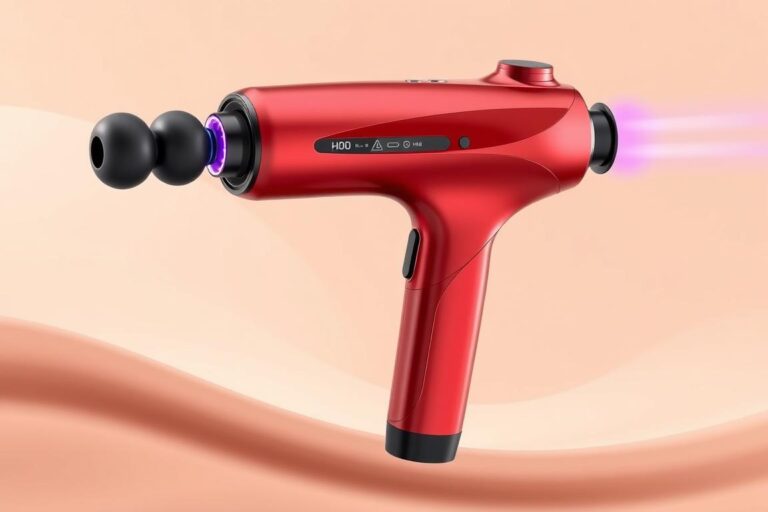Lifestyle Changes for Erectile Health: Small Steps, Big Impact

Understanding the Importance of Erectile Health

Maintaining good erectile health is essential for overall well-being and quality of life. While the topic may be sensitive for some, it’s important to address and understand the importance of erectile health in order to promote awareness, prevention, and timely intervention. Erectile dysfunction (ED) affects a significant number of men worldwide, with prevalence rates increasing with age. However, it’s not just an age-related issue, as various lifestyle factors can also influence erectile function.
A healthy erectile function relies on a complex interplay of physical, psychological, and vascular factors. Physical factors like blood flow, nerve function, and hormone levels play a crucial role, while psychological factors such as stress, anxiety, and depression can also contribute to erectile dysfunction. Additionally, certain lifestyle behaviors like smoking, excessive alcohol consumption, poor diet, lack of exercise, and substance abuse can further exacerbate the condition.
Understanding and appreciating the importance of erectile health allows individuals to take proactive steps in maintaining optimal function. By adopting a healthy lifestyle, managing stress levels, seeking professional help when needed, and maintaining overall physical and mental well-being, individuals can promote their own erectile health and enhance their overall quality of life.
The Connection Between Lifestyle and Erectile Function
A healthy lifestyle plays a crucial role in maintaining optimal erectile function. Numerous studies have shown a strong correlation between certain lifestyle choices and erectile health, highlighting the importance of adopting healthy habits. Unhealthy lifestyle choices, such as poor diet, lack of exercise, excessive stress, smoking, alcohol consumption, and substance abuse, can negatively impact erectile function.
When it comes to diet, a well-balanced and nutritious eating plan is key. Research has indicated that a diet rich in fruits, vegetables, whole grains, lean proteins, and healthy fats may improve erectile function. On the other hand, a diet high in processed foods, saturated fats, and added sugars has been linked to an increased risk of erectile dysfunction. Making small changes to your diet, such as incorporating more fruits and vegetables or swapping unhealthy snacks for healthier alternatives, can make a significant difference in your erectile health.
Maintaining a Healthy Diet for Optimal Erectile Health
A healthy diet plays a significant role in maintaining optimal erectile health. The foods we consume can have a direct impact on our sexual function and overall well-being. Research suggests that a diet high in fruits, vegetables, whole grains, lean proteins, and healthy fats can help improve erectile function and reduce the risk of erectile dysfunction (ED).
Fruits and vegetables, especially those rich in antioxidants like berries, citrus fruits, and leafy greens, contain essential nutrients that promote healthy blood flow and protect against oxidative stress. Whole grains, such as oats and quinoa, are excellent sources of fiber that can help lower cholesterol levels and improve blood circulation, crucial for achieving and sustaining an erection. Furthermore, consuming lean proteins like fish, chicken, and beans, provides amino acids that support the production of nitric oxide—a molecule necessary for erectile function. Incorporating healthy fats, such as those found in avocados, nuts, and olive oil, can also enhance blood circulation and promote healthy testosterone levels, which are vital for sexual health.
Regular Exercise and Its Positive Impact on Erectile Function

Regular exercise is not only important for overall health, but it can also have a positive impact on erectile function. Engaging in regular physical activity has been shown to improve blood flow throughout the body, including to the penis. This increased blood flow is essential for achieving and maintaining an erection.
Studies have found that men who engage in regular exercise are less likely to experience erectile dysfunction. In fact, one study published in the Journal of Clinical Epidemiology found that men who participated in moderate to vigorous physical activity for at least one hour per week had a 58% lower risk of developing erectile dysfunction compared to sedentary men.
Exercise also plays a role in reducing the risk of conditions that can contribute to erectile dysfunction, such as obesity, high blood pressure, and diabetes. Physical activity helps to control weight, improve cardiovascular health, and regulate blood sugar levels, all of which are important for maintaining optimal erectile function.
Incorporating regular exercise into your routine doesn’t mean you have to spend hours in the gym. Even moderate exercise, such as brisk walking or cycling, for just 30 minutes a day can make a difference. Finding activities that you enjoy and can stick with is key to making exercise a sustainable part of your lifestyle. So, lace up your sneakers and get moving for improved erectile health.
Managing Stress for Improved Sexual Performance
Chronic stress can have a significant impact on sexual performance and overall sexual satisfaction. When we are stressed, our bodies release cortisol, a hormone that can inhibit sexual desire and function. Additionally, stress can affect our emotional well-being, leading to decreased libido and difficulty in achieving and maintaining erections.
To manage stress and enhance sexual performance, it is important to develop healthy coping mechanisms. Engaging in regular exercise, such as walking, jogging, or yoga, can help reduce stress levels and improve blood circulation, which is crucial for achieving and sustaining erections. Finding time for relaxation activities, such as taking warm baths, practicing deep breathing exercises, or engaging in hobbies, can also significantly reduce stress and promote overall well-being.
Furthermore, communication with your partner about stressors and concerns can alleviate anxiety and create a supportive environment. Open and honest dialogue can strengthen the emotional bond between partners, allowing for a deeper connection and increased intimacy. In addition, seeking professional help, such as therapy or counseling, can provide helpful tools and strategies for managing stress and improving sexual performance. Remember, it is important to address stress and its impact on sexual health proactively, as it can have a profound effect on both physical and emotional aspects of intimacy.
The Role of Sleep in Enhancing Erectile Health
Sleep plays a crucial role in enhancing erectile health. Research has shown that there is a strong correlation between sleep quality and erectile function. Lack of adequate sleep can negatively impact sexual performance and contribute to erectile dysfunction.
During sleep, the body undergoes a process called nocturnal penile tumescence (NPT), which involves spontaneous erections. These erections are not necessarily related to sexual arousal but serve as an indicator of healthy erectile function. Studies have shown that men who experience regular and robust NPT are less likely to develop erectile dysfunction.
Additionally, sleep deprivation has been shown to disrupt hormone levels and decrease testosterone production. Testosterone is a key hormone involved in sexual desire and erectile function. Lack of sleep can lead to reduced testosterone levels, which can have a detrimental effect on erectile health.
In conclusion, ensuring an adequate and restful sleep is essential for maintaining optimal erectile health. Getting the recommended 7-9 hours of sleep each night can contribute to better erectile function and overall sexual well-being. If you’re experiencing difficulties in this area, addressing any sleep issues may be a valuable step towards improving your sexual health.
Avoiding Smoking and its Detrimental Effects on Erectile Function
Smoking not only has detrimental effects on overall health but can also significantly impact erectile function. Research has shown that smoking is a major risk factor for erectile dysfunction (ED), a condition that affects a substantial number of men worldwide.
The harmful chemicals in cigarettes, such as nicotine and carbon monoxide, can damage blood vessels and decrease blood flow to the penis. This can lead to difficulties in achieving and maintaining an erection. In fact, studies have found that smokers are up to 50% more likely to experience ED compared to non-smokers.
Furthermore, smoking has been linked to other underlying conditions that contribute to erectile problems, such as atherosclerosis (hardening of the arteries) and reduced testosterone levels. As smoking damages blood vessels and decreases oxygen supply, it can accelerate the progression of atherosclerosis, which can further impair erectile function. Testosterone, a hormone crucial for sexual health, can also be negatively affected by smoking. Research has indicated that smoking leads to lower testosterone levels, which can disrupt the intricate balance necessary for healthy sexual function.
Given the strong association between smoking and erectile dysfunction, quitting smoking is an essential step towards improving sexual health. Studies have shown that men who quit smoking experience significant improvements in their erectile function within as little as one year. By eliminating smoking, individuals not only enhance their overall health but also increase the likelihood of maintaining satisfactory sexual performance. Seeking support from healthcare professionals, utilizing quit smoking programs, and adopting alternative coping mechanisms can greatly aid in overcoming nicotine addiction and, in turn, improve erectile function.
The Impact of Excessive Alcohol Consumption on Erectile Health

Excessive alcohol consumption can have a significant impact on erectile health. Alcohol is a depressant that affects the central nervous system, leading to impairment in both physical and mental functions. When consumed in excess, alcohol can disrupt the normal functioning of the body, including the ability to achieve and maintain an erection.
One of the primary ways alcohol affects erectile health is by interfering with the body’s hormone production. Alcohol inhibits the production of testosterone, a hormone essential for sexual arousal and maintaining the health of the reproductive system. Low testosterone levels can result in reduced sexual desire and difficulty in achieving and sustaining an erection.
Moreover, alcohol consumption can also affect the circulatory system, which plays a crucial role in erectile function. Excessive alcohol intake can lead to the narrowing of blood vessels and increased blood pressure, reducing blood flow to the genital area. Insufficient blood flow can impair the ability to achieve a firm erection, making it challenging to have satisfying sexual experiences.
It is important to note that occasional and moderate alcohol consumption is unlikely to have a significant impact on erectile health. However, excessive and chronic alcohol abuse can lead to long-lasting sexual dysfunction. If you are concerned about your erectile health, it is essential to seek professional help and reconsider your alcohol consumption habits.
Tips for Achieving and Maintaining a Healthy Weight
Obesity is a major concern worldwide, affecting millions of individuals and posing significant health risks. Achieving and maintaining a healthy weight is not only important for overall well-being but also plays a crucial role in maintaining optimal erectile health. Excess weight can contribute to various conditions such as diabetes, high blood pressure, and cardiovascular disease, all of which can negatively impact erectile function.
One of the key tips for achieving and maintaining a healthy weight is to focus on a balanced and nutritious diet. Consuming a variety of whole foods, including fruits, vegetables, lean proteins, and whole grains, provides the necessary nutrients while keeping calorie intake in check. Additionally, practicing portion control and mindful eating can help prevent overeating and promote weight management. Consulting with a registered dietitian or nutritionist can provide personalized guidance and support in adopting healthier eating habits.
Regular physical activity is also crucial in maintaining a healthy weight. Engaging in exercises that elevate heart rate and increase calorie burn, such as brisk walking, jogging, or cycling, can aid in weight loss and improve overall cardiovascular fitness. Combining cardiovascular exercises with strength training can help build lean muscle mass and boost metabolism, contributing to long-term weight maintenance. It is essential to find physical activities that are enjoyable and sustainable to ensure consistency and maximize the benefits of regular exercise.
Achieving and maintaining a healthy weight is not only beneficial for overall health but can also positively impact erectile function. By implementing these tips and adopting a healthy lifestyle, individuals can take proactive steps in promoting their erectile health and overall well-being.
How Medications and Substance Abuse Can Affect Erectile Function
Medications and substance abuse can have a significant impact on erectile function and sexual health. Certain medications, such as antidepressants and blood pressure medications, may have side effects that can affect sexual performance. These medications can interfere with nerve signals and blood flow, making it difficult for men to achieve and maintain an erection. It is important to discuss any concerns about medication side effects with a healthcare provider, as they may be able to recommend alternative treatments or adjust the dosage to minimize these effects.
Substance abuse, including alcohol and illicit drugs, can also contribute to erectile dysfunction. Excessive alcohol consumption can disrupt the hormone balance in the body and impair blood flow to the penis, making it challenging to achieve or sustain an erection. Illicit drugs, such as cocaine or marijuana, can also interfere with the body’s natural sexual response and cause erectile problems. Seeking help for substance abuse issues is crucial not only for overall health but also for restoring erectile function. It is essential to remember that addressing the root causes of substance abuse and receiving appropriate treatment can improve both physical and sexual well-being.
The Benefits of Regular Sexual Activity for Erectile Health
Engaging in regular sexual activity can have a positive impact on erectile health. When a person engages in sexual activity, it increases blood flow to the penis, allowing for the formation of an erection. This increased blood flow helps to keep the blood vessels in the penis healthy and functioning properly. In fact, research has shown that men who have regular sexual activity are less likely to experience erectile dysfunction.
In addition to the physical benefits, regular sexual activity can also improve overall sexual function and satisfaction. Sexual activity releases mood-boosting hormones such as oxytocin and endorphins, which can reduce stress and improve feelings of intimacy and connection with a partner. Furthermore, the release of these hormones can have a positive impact on mental health, which plays a crucial role in erectile function.
It’s important to note that the benefits of regular sexual activity for erectile health may vary from person to person. Factors such as age, overall health, and individual circumstances can influence the relationship between sexual activity and erectile function. Therefore, it’s always recommended to consult with a healthcare professional for personalized advice and guidance.
Promoting Healthy Relationships and Open Communication
Promoting healthy relationships and open communication is crucial for maintaining strong emotional and physical connections between partners. When it comes to sexual intimacy, being open and honest about desires, concerns, and expectations can create a safe and supportive environment that fosters trust and understanding.
Open communication allows partners to discuss any sexual difficulties or concerns they may be experiencing without judgment or embarrassment. This can be especially important when it comes to addressing erectile health. Many men may feel ashamed or inadequate when facing issues related to erectile function, but discussing it openly with a partner can help alleviate anxiety and reduce stress.
In addition to addressing any concerns, open communication about sexual desires and preferences can lead to a more fulfilling sexual relationship. Understanding each other’s needs and being willing to explore and experiment can enhance intimacy and satisfaction. By openly discussing desires and boundaries, partners can create a safe and consensual space where both individuals feel comfortable expressing their desires.
Remember, healthy relationships and open communication are essential for maintaining emotional and physical connections. By fostering open and honest dialogue about sexual health, desires, and concerns, partners can strengthen their bond and support each other through any challenges that may arise.
The Impact of Mental Health on Erectile Function
Mental health plays a significant role in erectile function. Studies have shown that conditions such as anxiety, depression, and chronic stress can have a negative impact on a man’s ability to achieve and maintain an erection. The mind and body are intricately connected, and when mental health is compromised, it can disrupt the signaling pathways that enable an erection to occur.
Research has found that anxiety, in particular, can activate the sympathetic nervous system, which triggers the body’s “fight or flight” response. This response causes increased heart rate, elevated blood pressure, and heightened muscle tension – all of which can interfere with the normal blood flow necessary for an erection. Similarly, depression can lead to decreased libido and a lack of interest in sexual activity, making it difficult for a man to become aroused.
Additionally, chronic stress can take a toll on erectile function. Stress triggers the release of cortisol, a hormone that can reduce testosterone levels and impair the body’s ability to produce nitric oxide – a key molecule that relaxes and dilates blood vessels in the penis. Without proper blood flow, achieving and maintaining an erection becomes challenging.
In conclusion, it is crucial to prioritize mental health when addressing issues of erectile dysfunction. Seeking support from healthcare professionals, such as therapists or counselors, can be beneficial in managing anxiety, depression, and stress levels. By addressing and managing mental health concerns, men can improve their overall well-being and potentially restore healthy erectile function.
Seeking Professional Help and Treatment Options for Erectile Issues
Seeking help and exploring treatment options for erectile issues can be a crucial step towards improving your sexual health and overall well-being. If you’re experiencing persistent difficulties with achieving or maintaining an erection, it’s important not to ignore the issue or feel embarrassed about seeking professional assistance. Remember, you’re not alone in facing these challenges, and there are various effective treatments available to address erectile dysfunction (ED).
When it comes to seeking help for erectile issues, your first point of contact should be a healthcare professional with expertise in sexual health, such as a urologist or a gynecologist. They can conduct a comprehensive evaluation to determine the underlying causes of your erectile difficulties. This may involve discussing your medical history, conducting a physical examination, and possibly ordering additional tests to assess your hormone levels, blood flow, or any other relevant factors. A thorough assessment can help identify whether your erectile issues are caused by physical factors, psychological factors, or a combination of both.
Once the underlying causes have been identified, your healthcare provider can recommend appropriate treatment options tailored to your specific needs. The treatment plan may include lifestyle modifications, medication, therapy, or a combination of these approaches. Lifestyle modifications may involve changes in diet, exercise routine, or stress management techniques, which can have a positive impact on erectile function. Medication options, such as oral phosphodiesterase type 5 (PDE5) inhibitors, can increase blood flow to the penis and help facilitate erection. For individuals with psychological factors contributing to their erectile difficulties, counseling or therapy sessions may be suggested to address underlying emotional or mental health issues.
Remember, seeking professional help and exploring treatment options for erectile issues is a positive step towards reclaiming your sexual health and enhancing your overall well-being. With the guidance and support of knowledgeable healthcare professionals, you can find effective solutions tailored to your specific needs and regain confidence in your sexual performance. Don’t hesitate to reach out for assistance, as there are numerous resources available to help you on your journey towards optimal erectile health.
Maintaining Overall Health for Long-Term Erectile Well being
Maintaining overall health is crucial for long-term erectile well-being. Taking care of your physical and mental health can significantly impact your sexual function and performance. While there are many factors that can affect erectile function, such as age and underlying medical conditions, adopting healthy habits can help improve and maintain your sexual health.
One important aspect of maintaining overall health is adopting a balanced diet. A diet that is rich in fruits, vegetables, whole grains, and lean proteins can provide essential nutrients that are important for erectile function. Additionally, certain foods like dark chocolate, watermelon, and nuts have been associated with improved blood flow, which can benefit erectile health.
Regular exercise is another key component of a healthy lifestyle for optimal erectile function. Engaging in moderate-intensity exercises like walking, jogging, or swimming can help improve circulation and reduce the risk of developing conditions that can contribute to erectile dysfunction, such as obesity and cardiovascular disease. Aim for at least 150 minutes of moderate exercise per week to reap the benefits.
In the next section, we will explore the impact of stress on sexual performance and strategies for managing it effectively. Stay tuned for more valuable information on how you can take charge of your overall health and enhance your erectile well being.
Can erectile dysfunction be a sign of an underlying health condition?
Yes, erectile dysfunction can sometimes be a symptom of an underlying health condition such as diabetes, heart disease, or high blood pressure.
Are there any natural remedies or supplements that can help with erectile health?
While there are some natural remedies and supplements marketed for erectile health, it is important to consult with a healthcare professional before trying any of them, as they may not be scientifically proven or safe for everyone.
Can excessive pornography consumption lead to erectile dysfunction?
There is limited research suggesting that excessive consumption of pornography may contribute to erectile dysfunction in some individuals. However, more studies are needed to fully understand the impact of pornography on erectile function.
Does age play a role in erectile health?
Yes, age can affect erectile health. As men get older, they may experience changes in their sexual performance due to factors such as decreased testosterone levels and other age-related health conditions.
Can cycling affect erectile function?
Prolonged or intense cycling can potentially contribute to erectile dysfunction, as the pressure on the perineum during cycling may damage nerves and blood vessels essential for proper erectile function. Using a properly fitted saddle and taking breaks during long rides can help reduce the risk.
Can excessive masturbation lead to erectile dysfunction?
No, there is no scientific evidence to suggest that moderate or occasional masturbation can cause erectile dysfunction. However, excessive or compulsive masturbation may lead to temporary difficulties in achieving or maintaining an erection.
Can stress-related erectile dysfunction be cured without medication?
In some cases, stress-related erectile dysfunction may improve or resolve with stress management techniques such as exercise, relaxation exercises, therapy, or lifestyle changes. However, it is important to consult with a healthcare professional for personalized advice.
Can herbal supplements for erectile dysfunction be effective?
Some herbal supplements claim to improve erectile function, but their effectiveness and safety are not well-regulated or scientifically proven. It is best to consult with a healthcare professional before trying any herbal remedies.
Can having multiple sexual partners affect erectile health?
Engaging in multiple sexual partners does not directly impact erectile health. However, practicing safe sex and maintaining open communication with partners regarding sexual health can help prevent the transmission of sexually transmitted infections that may indirectly affect erectile function.
Can mental health conditions like depression and anxiety contribute to erectile dysfunction?
Yes, mental health conditions such as depression and anxiety can contribute to erectile dysfunction. These conditions can affect the brain’s ability to send signals to initiate the physiological changes necessary for an erection.
Can erectile dysfunction be a side effect of certain medications?
Yes, certain medications such as antidepressants, antihistamines, and blood pressure medications can have erectile dysfunction as a side effect. If you suspect a medication is affecting your erectile function, consult with a healthcare professional for possible alternatives.
Can a lack of communication in a relationship affect erectile health?
Yes, a lack of communication in a relationship can contribute to stress, anxiety, and emotional strain, which may indirectly affect erectile function. Open communication and addressing any relationship issues can improve overall sexual health.







